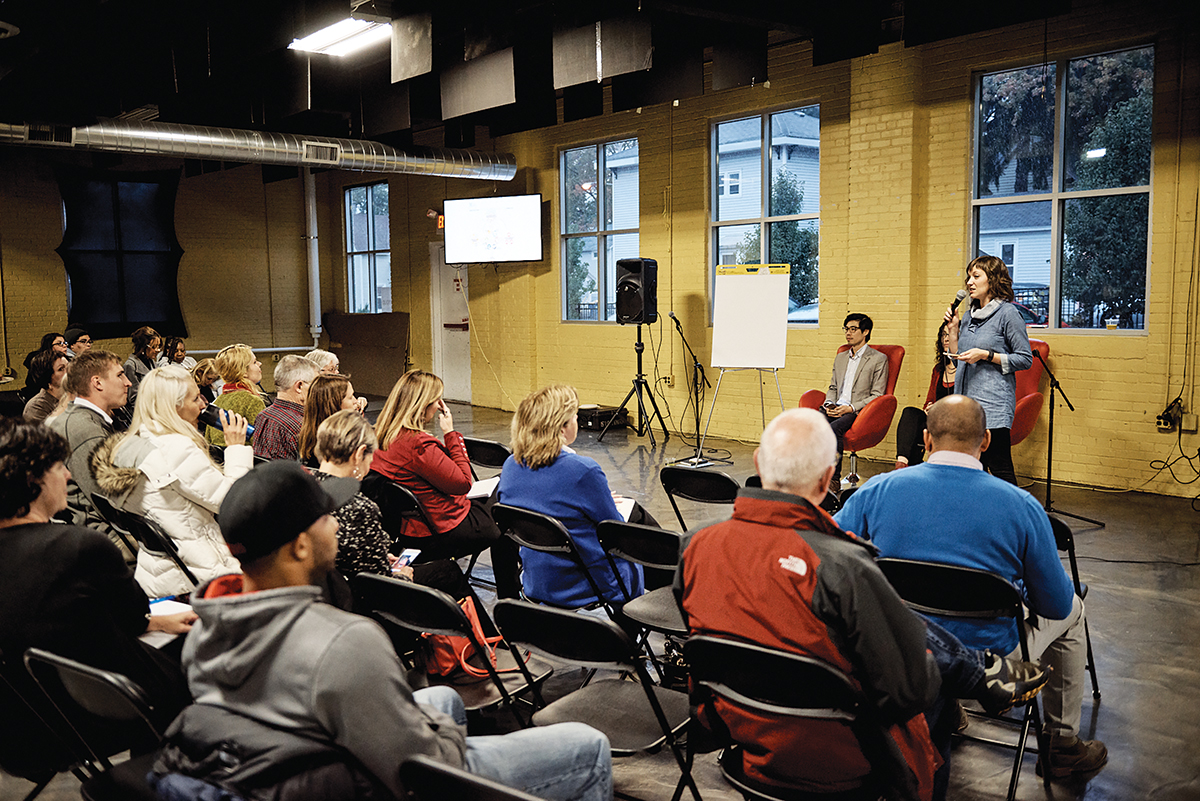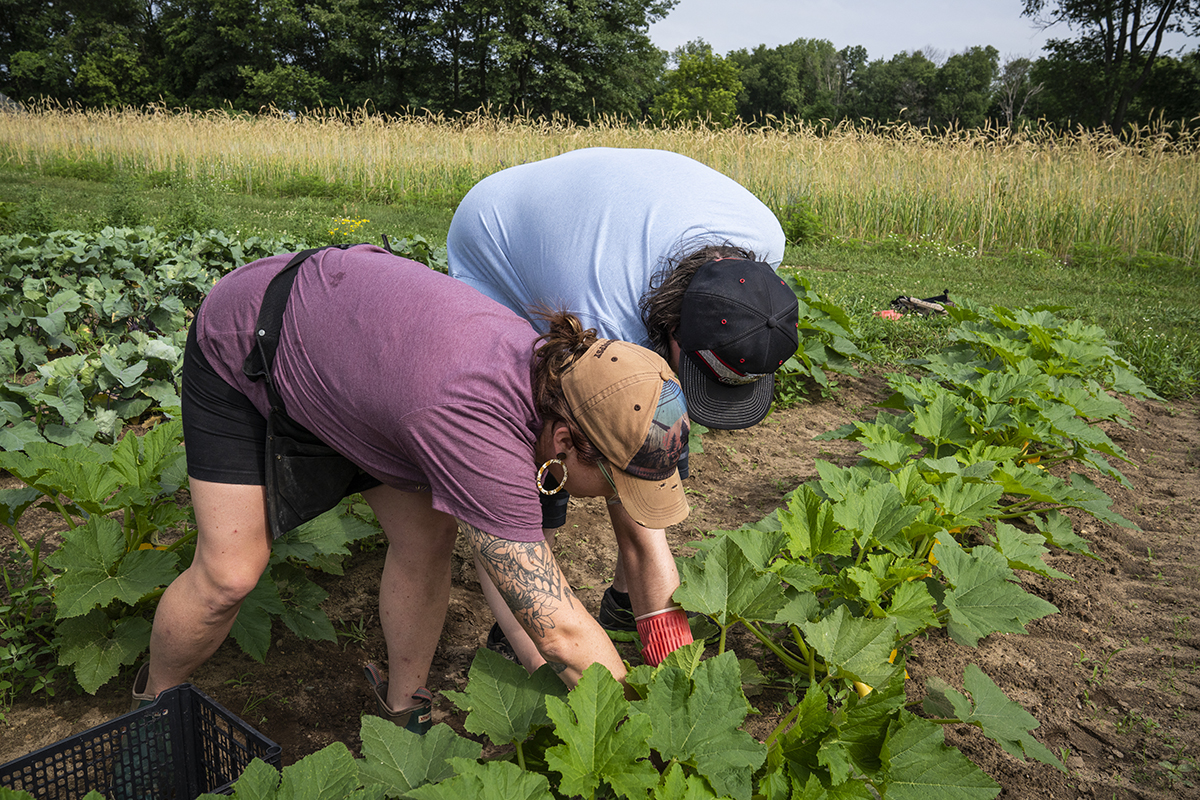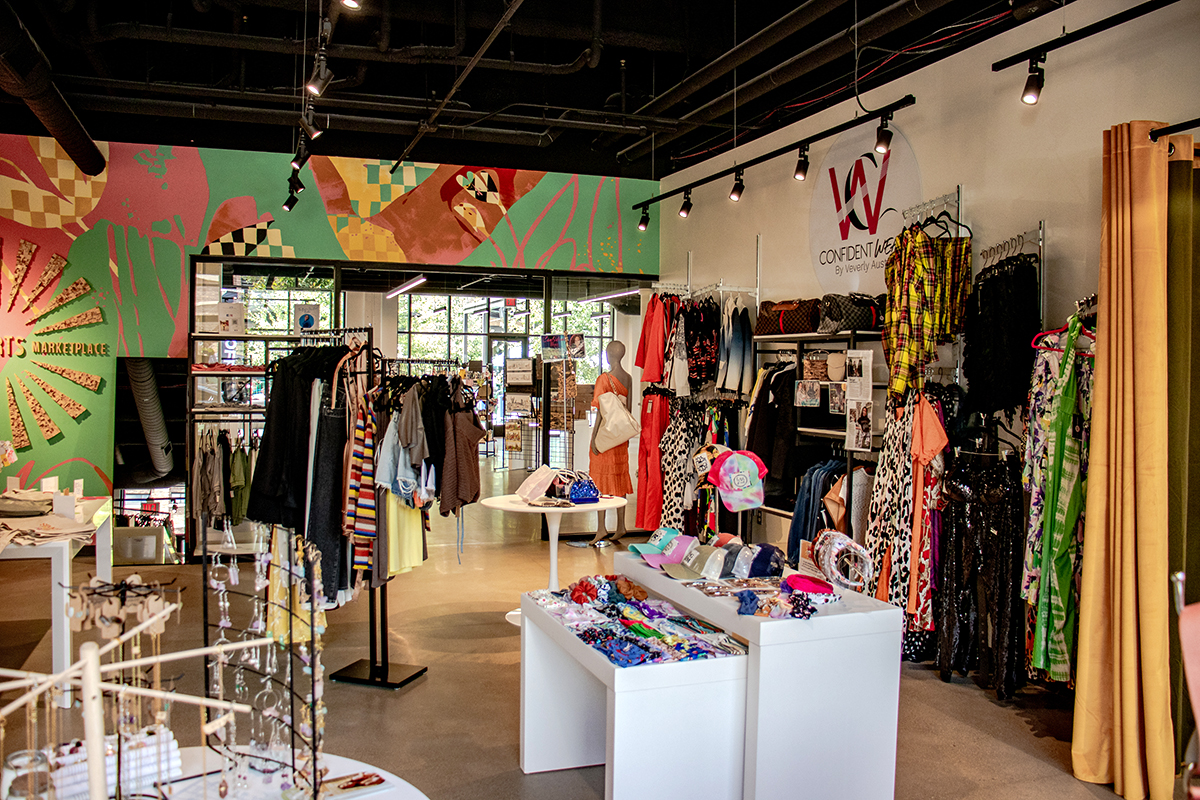WRITER | NICOLETTE CHAMBERY
PHOTOS | LOCAL FIRST
Championing the Case for Local Business in West Michigan
A little over 15 years ago, a small group of business owners came together to find a way to support local businesses in West Michigan. They sensed a lot of community energy around the idea of promoting local ownership and created a process whereby member organizations could formally network around events and across various support platforms. Local First was born.
The budding group of members experienced exponential growth, so, in 2007, four years after its inception, Local First hired Elissa Sengalli Hillary as director and acquired nonprofit status in order to begin fundraising. In just two years, Local First membership grew from 150 to over 500 locally owned businesses and was able to hire additional staff to assist Hillary in brainstorming new undertakings the organization could sustain.
An important collaborator with Local First from the beginning has been the Business Alliance for Local Living Economies. BALLE, as it’s known, which promotes investors and entrepreneurs who are defying business norms to create a more sustainable and environmentally friendly business culture.
As part of BALLE’s Community of Practice, Local First spearheads the campaign called Buy Local, which is another way of saying People First. Local First analyzed the cost benefits of keeping community dollars within the community by purchasing clothes, groceries, gifts, etc. at locally owned businesses. It turns out that, for every $100 spent at a local business, the outside economy loses $32, whereas $57 leave the community when items are purchased at a nonlocal business.
One interesting challenge is that, from time to time, organizations want to support Local First but do not meet membership criteria. No organization ever wants to turn down funding — it almost seems imprudent.
According to Mieke Stoub, Local First’s marketing manager since 2015, “Local First brings meaning back into business and to our personal interactions and exchanges. Without a consistent local component, we lose our connections to each other and the agencies that exist to enhance our daily lives.”
Stoub, a Grand Valley State University graduate who first interned at Local First in 2013, knows firsthand the triumphs and challenges of entrepreneurship as her parents were local business owners. She points out that, “The challenge is for us to redefine as an organization while maintaining our commitment to ethics and the standard we set for our members.”
So, looking ahead, Local First plans to move into sustainable and ethical ownership and ask deeper questions of member businesses. It partnered with a national nonprofit that certifies best business practices and helped Local First generate a 63-question assessment of how sustainable a business’s day-to-day operations are. These include whether the business has a recycling program and what the wage differential is between the lowest-paid employee and the highest-paid employee.
Having lived in Grand Rapids for nearly ten years, I was a beneficiary of Local First’s work, which made the whole city feel smaller and more accessible. There was a sense of diversity throughout the area Uptown, but also consistency that the underlying goal was to thrive through building community.
Local First Educational Foundation
345 Fuller Avenue NE, Grand Rapids MI 49503
(616) 808-3788
LocalFirst.org








